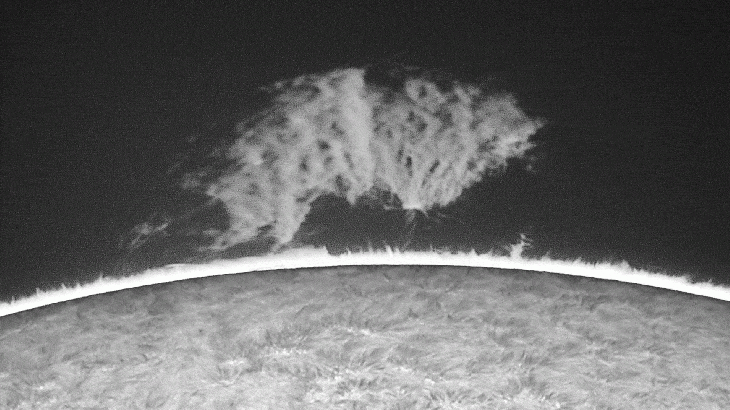What Would Happen If You Played Tug-Of-War in Outer Space?
As with many experiments in space, something entirely different happens. Instead of the losing side getting pulled toward the winning side, both players get pulled toward each other, ending up in a somewhat awkward embrace.
The reason for this impromptu hug is Newton's third law of motion: For every action, there is an equal and opposite reaction. [What Would Happen If You Shot a Gun in Space?]
In other words, any time you exert a force on an object, that object exerts an equal force back. This law can be less evident on Earth than in space because of Earth's gravity. For instance, if you were pushing a boulder on Earth, it would be hard to move the rock because of its large mass. But, perhaps unbeknownst to you, the hefty rock is pushing back at you with the exact same force. You would fly backward if gravity weren't holding you firmly on the ground.
In contrast, these forces are extremely evident in the microgravity of space, said NASA spokesman Daniel Huot.
"When you push on something, it pushes back, and that can propel you away" in space, Huot told Live Science.
Koichi Wakata, an astronaut with the Japan Aerospace Exploration Agency (JAXA), demonstrated just that when he played a game of tug-of-war with Robert Thirsk, an astronaut with the Canadian Space Agency. The two did the experiment in the Kibo Japanese Experiment Module of the International Space Station (ISS) in 2009. Astronauts often do experiments like this to engage with the public, Huot said.
In a video of the experiment, the moment Wakata and Thirsk pull on the tug-of-war rope (in this case, a towel), they immediately move toward each other, then collide.
Get the world’s most fascinating discoveries delivered straight to your inbox.
"When you see them tugging on the towel, you're seeing that force in action," Huot said. "You impart that force on the towel. It imparts it back on you, and you move toward it."
This situation is very different from playing the same game on the ground. "When you're playing tug-of-war down here on Earth, usually the person who weighs more and has a little bit more chemical energy in their muscles is going to win that fight," Huot said.
But in the microgravity of space, "if you're not anchored in place, then when you push [or pull] on something, it's going to push [or pull] back, and you're going to go flying," Huot said.
Original article on Live Science.

Laura is the archaeology and Life's Little Mysteries editor at Live Science. She also reports on general science, including paleontology. Her work has appeared in The New York Times, Scholastic, Popular Science and Spectrum, a site on autism research. She has won multiple awards from the Society of Professional Journalists and the Washington Newspaper Publishers Association for her reporting at a weekly newspaper near Seattle. Laura holds a bachelor's degree in English literature and psychology from Washington University in St. Louis and a master's degree in science writing from NYU.

